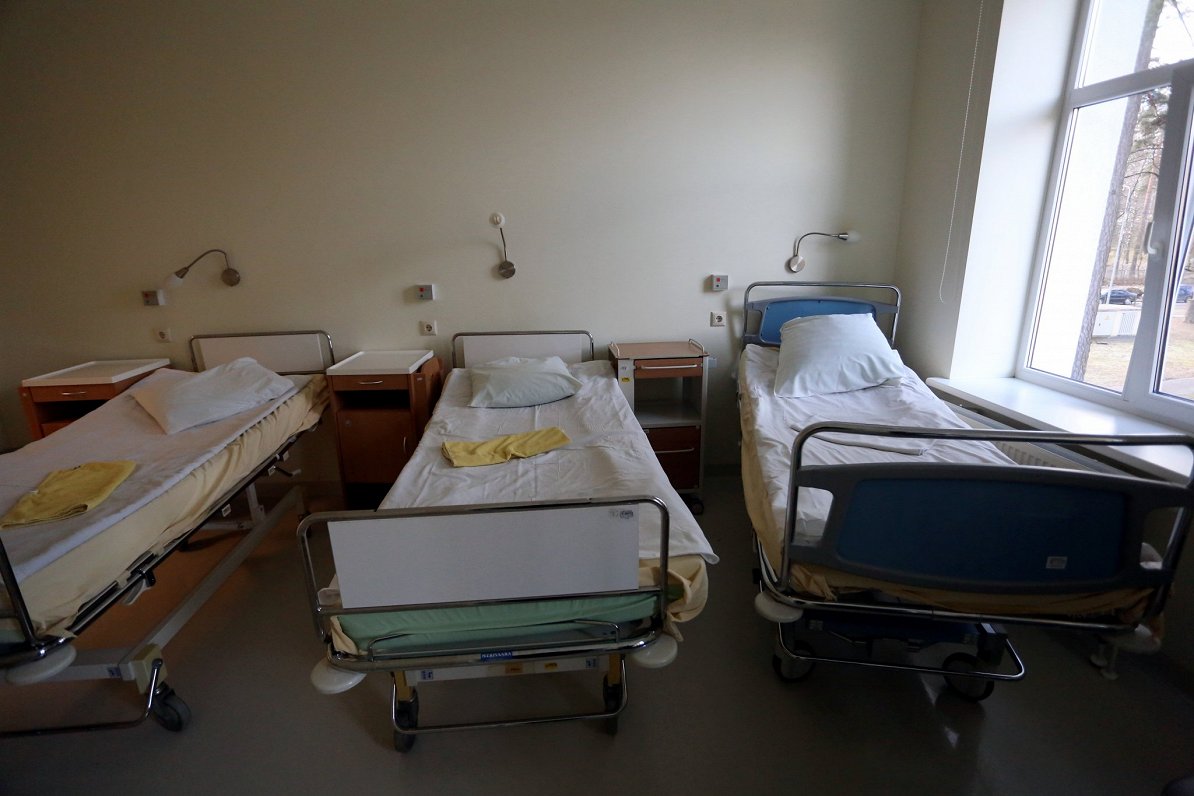“This is a rearrangement of hospitals on the basis of the decisions that have already been taken,” Mūrmane-Umbraško said.
“A sufficient number of [bed sites] in the long term could not only be available in the Riga East Clinical University Hospital and Pauls Stradiņš hospital, but also in the large regional hospitals. For example, Daugavpils Regional Hospital is very active - they plan to reprofile around 100 beds themselves,” explained Mūrmane-Umbraško.
The children's department of Jelgava Hospital could be transformed into a department for the treatment of COVID-19 patients. This means that minor patients from Jelgava could be transferred to the Children's Hospital in Rīga. This means that in an acute case the child will not go to Jelgava hospital, but to Rīga in an ambulance.
More than 20 COVID-19 patients could be admitted to Jelgava hospital, but the hospital would see this as an extreme situation. There is no experience with such patients.
“There is no Infection Department in our hospital, and given the proximity of Rīga, it has never been a problem. We agreed yesterday that we were taking long-term patients from Stradiņš hospital to relieve their load (..). Now there's going to be COVID [patients], we're not endless either. Our opportunities are limited,” said Andris Ķipurs, board member of Jelgava Hospital.
Patient transfer is also causing issues.
Every day, hospitals are both admitting new coronavirus patients and discharging those whose state of health is stable enough. However, it is difficult for some of the patients to go home, since they can come from municipalities farther away.
Using public transport is not allowed, given that the infectious virus is still in the body. Some days there are ten people waiting in line to be moved home. The East Hospital transports patients from Rīga and the region free of charge, while the transfer of COVID-19 patients to other regions calls for local authorities and volunteers to be involved.
The East hospital's chairman Imants Paeglītis said, though, that the situation is gradually improving. The State is also prepared to pay for the transportation services of COVID-19 patients discharged from Riga East Hospital.
It has already been reported that a number of hospital capacity rearrangement decisions were taken in the past, including the requirement to provide a 15% proportion of free beds for emergency services.






























